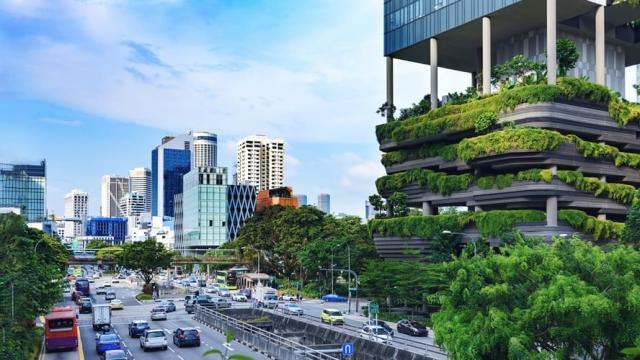Despite being one of the world's most competitive economies, Singapore has not escaped the financial shock caused by COVID-19. Singapore's Finance Minister, Mr. Heng Swee Keat, considers the pandemic to be "the country's biggest crisis since independence." According to the Labour Market Report, Singapore experienced its sharpest employment rate decline on record in the second quarter of 2020 as employee retrenchment doubled.
In this blog, we review four ways Singapore's Ministry of Manpower (MoM) addresses the heightened sense of job insecurity—and how these changes impact the country's hiring policy of foreign professionals.
Change 1: Introducing the Jobs Support Scheme (JSS) and Jobs Growth Incentive (JGI)
In August, the MoM introduced the Jobs Support Scheme (JSS) and Jobs Growth Incentive (JGI). The JSS initiative aims to protect the local workforce by extending wage support (up until March 2021) to businesses that retain their Singaporean employees. Similarly, the JGI creates job opportunities for locals through multiple incentives, like allotting $1 billion to support firms that increase their local worker headcount over the next six months.
Change 2: Tightening Employment Pass and Fair Consideration Framework Standards
Foreigners who wish to work in Singapore must obtain the correct work authorization before their official start date. One of the most common work authorizations available to professionals, managers, and executives is an Employment Pass (EP).
To make it harder for employers to hire foreign employees, the MoM created more rigorous Employment Pass (EP) application criteria. The MoM also strengthened the Fair Consideration Framework (FCF), designed to ensure that employers give equal consideration to local and foreign employees.
By bolstering EP and FCF requirements, Singapore increases the red tape for companies hiring foreign workers.
Change 3: Raising the Minimum EP Salary Requirement
In another move designed to encourage local hiring, Singapore raised the minimum qualifying salary for EP holders from $3,900 to $4,500. As a result, companies find it increasingly costly to compliantly hire non-Singaporean employees.
Change 4: Increasing the Minimum Job Posting Duration
Singapore also increased the minimum duration for the job posting from 14 days to 28 days. By requiring companies to wait longer before making hiring decisions, the government hopes to give local job-seekers more time to respond to openings. Additionally, employers gain access to a broader pool of applicants—and the time to properly evaluate each one.
Why Singapore Is Tightening International Employment Legislation
As an island with limited natural resources, Singapore invests heavily in its citizens. The country's goal is to build a skilled workforce that helps it attract foreign business. By combining inward investment with an infusion of international talent, Singapore maintains its position as a global business hub.
The COVID-19 pandemic forced countries to impose travel restrictions that affect Singapore's ability to attract foreign workers. Singaporean businesses that rely on international professionals cannot function normally, negatively affecting the country's economy.
Singapore's government hopes its recent employment changes will help the country combat the economic downturn in two ways:
- Attract high-value investments into the country
- Provide more job opportunities for local employees
By increasing foreign labor costs, the government incentivizes businesses to source international workers only in industries where locals lack specialized skills and capabilities. As a result, Singapore plans to decrease unemployment while injecting its workforce with a higher level of expertise and skillsets—enabling the country to enter new growth segments in the global economy.
Maintain Your Hiring Plans Amidst Changing Employment Laws
As Singapore boosts efforts to recruit and re-train more local workers, the country has not given up on foreign hiring. Employers can still apply for an EP but should be ready for a higher level of review than before.
The increased scrutiny forces some businesses to explore other options for keeping their international hiring plans on track. International PEO (Professional Employer Organization) is a flexible hiring solution that allows companies to quickly and compliantly hire a foreign employee in Singapore.
Our global expansion experts are here to help firms like yours understand the complexities associated with ever-changing immigration laws—in Singapore and beyond. Ready to learn more? Reach out to us today.
Topic:
Immigration + Relocation



